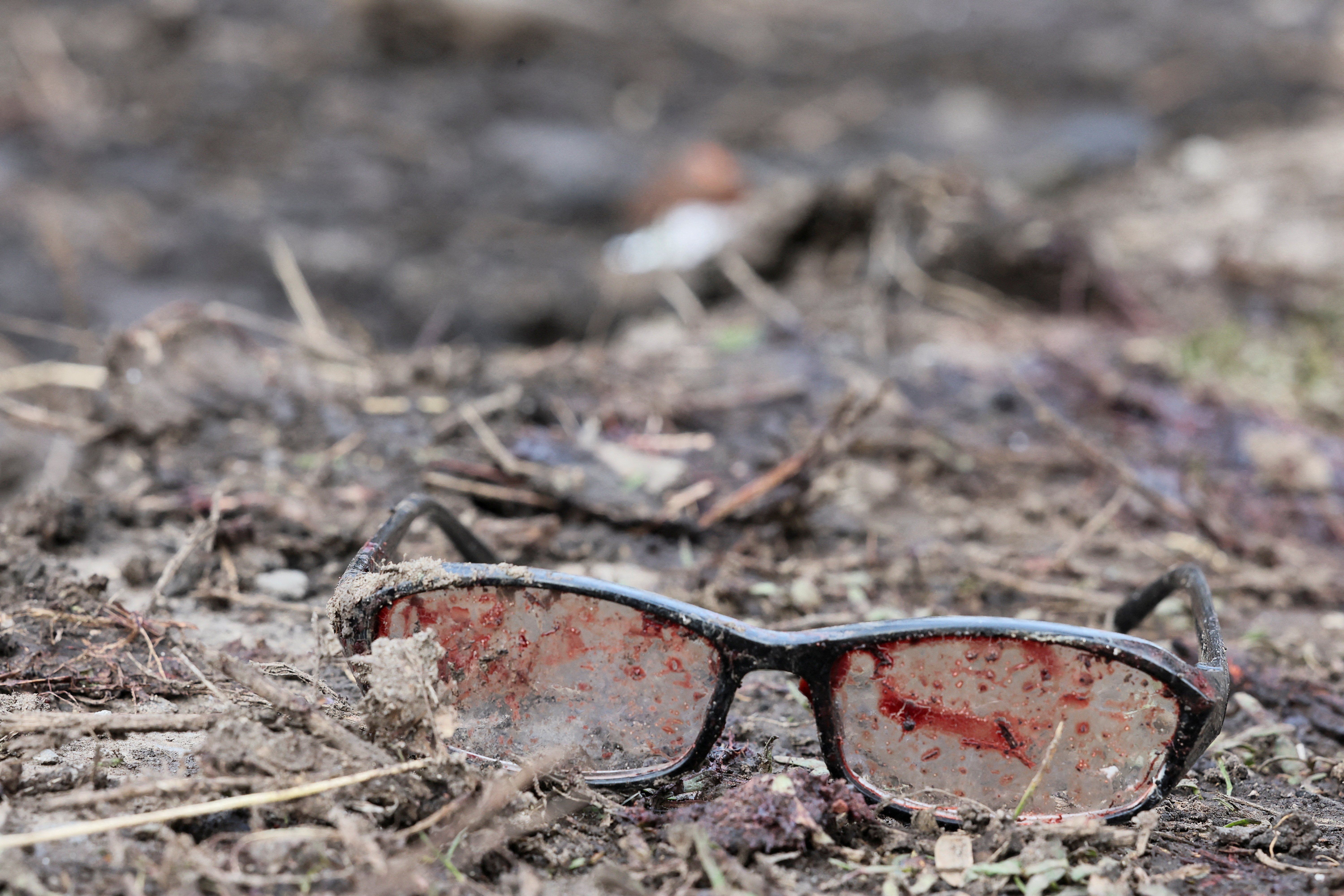What We’re Watching: Russia hits eastern Ukraine, Finland's election results, UBS-Credit Suisse probe, European leaders prepare for Xi meeting
Russia’s defense chief says more ammo is on the way
At least six Ukrainians were killed Sunday in the eastern city of Kostyantynivka as Russian forces continued their onslaught on the nearby city of Bakhmut in hopes of occupying the entire Donetsk region in the Donbas.
The attack on residential buildings in the industrial city comes as Russian forces in eastern Ukraine appear increasingly depleted and desperate – and unfolded just days after President Vladimir Putin announced a spring conscription, confirming that 147,000 more soldiers will be called up this month in anticipation of a fresh Ukrainian offensive.
Later on Sunday, a prominent Russian nationalist and military blogger was killed when a St. Petersburg cafe was hit in a targeted attack. Russian authorities have since arrested a woman, reportedly an anti-war activist, who – records show – spent time in jail for participating in an anti-war protest.
It’s clear that Russia’s defense establishment is jittery: In recent days, Defense Minister Sergei Shoigu addressed Russia’s depleting ammo reserves, telling high-ranking military officials that “necessary measures are being taken to increase” stockpiles.
This comes after the British military announced that Russia’s failure to make advancements in Bakhmut was largely due to artillery ammunition shortages that are causing Russian forces to ration their rounds, which hardly sounds like a winning military strategy. Still, it remains unclear exactly how Moscow is planning to rapidly increase its stash of short precision weapons.
Crucially, the Washington-based Institute for the Study of War reported in recent days that amid stagnation on the battlefield, a reshuffle amongst Russian senior commanders could soon be in the cards.
Finland’s election results
Finland’s left-wing millennial PM Sanna Marin has narrowly lost a nail-biter election. In what has long been deemed a three-way race, Petteri Orpo's National Coalition Party has scraped ahead – only just – with 20.8%, compared to 20.1% for the nativist Finns Party and 19.9% for Marin’s Social Democrats.
Marin conceded defeat, while Orpo, a former finance minister, said that Finland’s commitment to Ukraine would remain unchanged. Finland’s imminent joining of NATO featured only indirectly during the campaign, largely because it isn’t a very controversial topic in Finland, where around 80% of people support bloc membership. For more on what was at stake in this election, see our explainer here.
Crucially, like many countries dealing with economic stagnation due to COVID and the war in Europe, bread-and-butter issues dominated the campaign trail. Still, it wasn’t all bad news for the Social Democrats: While Orpo’s NCP won 48 seats in the 200-seat parliament, a gain of 10 seats, SDP also gained three seats, finishing with 43 – though Marin’s left-of-center coalition partners shed seats.
Orpo will take the first crack at forming a coalition government and will become the Nordic country’s next PM, but post-election bargaining will take time.
Swiss prosecutors investigate UBS-Credit Suisse merger
Weeks after UBS, Switzerland's largest bank, clinched a deal to buy embattled Credit Suisse for $3.5 billion, Swiss prosecutors say they are investigating the massive merger.
Led by the attorney general, the probe will focus on alleged criminal acts by government officials, regulators, and bank execs at both institutions that hastily crafted the agreement to try and calm the markets. You'll likely remember that Credit Suisse’s value plummeted after the bank, Switzerland's second largest, disclosed major internal problems amid broader turmoil in the global banking sector.
Indeed, politicians from across Switzerland’s political spectrum have raised concerns that the government erroneously used emergency powers to extend financial guarantees to UBS at taxpayers’ expense.
What’s more, international critics say the merger – whereby UBS’s balance sheet could now come out to a whopping $5.5 trillion – could drive UBS' risk tolerance through the roof because it’ll be way too big for the Swiss government to let it collapse.
The deal is also very unpopular in Switzerland. Most Swiss – 75% of those polled – say they are against the merger, fearing it will create a banking behemoth with its own set of rules.
Separately, starting on April 11, the Swiss parliament will hold a special session focused on the merger that could lead to a formal commission of inquiry. But for now, the merger is going full steam ahead, with reports that UBS could slash 36,000 jobs in the near term.
European heavyweights head to Beijing
Two European leaders are headed to Beijing this week for talks with President Xi Jinping, and the meet-and-greet could not come at a more awkward time in EU-China relations.
European Commission President Ursula von der Leyen and French President Emmanuel Macron will meet with Xi on Wednesday in a bid to convey that European ties with China are contingent on Beijing backing away from his mate Vladimir Putin.
In a sign of the EU’s current thinking on China, von der Leyen last week gave a scolding 40-minute speech where she accused Beijing of “becoming more repressive at home and more assertive abroad.” And in a move that likely infuriated both Moscow and Beijing, she claimed that China is using Putin’s apparent international isolation to gain leverage with Russia. Unsurprisingly, China hit back, saying the EU chief’s speech had “no coherence” and was in part aimed at appeasing the United States.
Macron, facing a dumpster fire of a political situation at home, has said that the aim of the trip is to present a united European front against China’s “no-limits” friendship with the Kremlin.
Still, both sides will likely tread carefully in order to preserve their respective economic interests, with daily two-way trade in goods coming in at a whopping €1.9 billion ($2 billion).__________________
Subscribe to GZERO Daily to get the world's best (and free) global politics newsletter every day.
